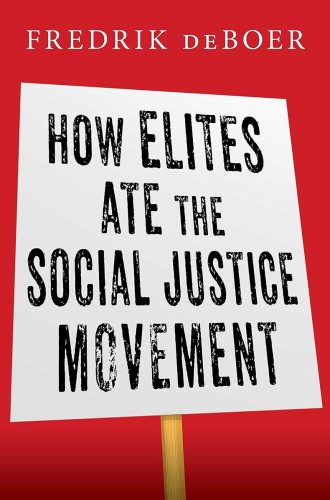Why is progressive activism so ineffective?
Fredrik deBoer explains why the mobilization of 2020 produced so few concrete gains.
In 2021, a scandal arose in the Evangelical Lutheran Church in America. It began with the irregular dismissal, by the regional leadership, of a pastor serving a mostly immigrant mission congregation that had more people but less money than many self-governing congregations. An ad hoc investigation by the national church turned up bizarre decisions made by the bishop, some with implications that seemed racially insensitive at best. Claims and counterclaims of racism and transphobia (the bishop was the first transgender person to hold that office in the denomination) escalated. The failure of governance had ugly dimensions. An overwhelmingly White denomination appeared to disregard the dignity of a Latino and Spanish-language community within its fellowship. A church body supported mostly by the middle-class advantages of homeownership and professional employment was stepping on a mission that lacked the defense of financial resources. In the end, the national leadership issued a long and self-flagellating official apology and committed to more anti-racism training.
This was a case study in the limitations of liberal institutions, starting before but intensifying after the 2020 wave of racial justice activism. Material inequality and concrete injustice were answered with symbolism and a call to moral self-improvement, as if more talking, better language, and more classes could overcome the inequalities of a system in which self-governance and independence are goods a congregation can, in effect, pay for. According to Fredrik deBoer, this is not an accident. How Elites Ate the Social Justice Movement seeks to explain why the righteous anger and mass mobilization that swept through the progressive quarters of America in the summer of 2020 receded with little policy change or concrete gains in equality.
Read our latest issue or browse back issues.
DeBoer’s story begins with the failures of the 2003 protests against the Iraq War and the 2011 Occupy Wall Street movement. These movements were unstructured, unfocused, and, in the case of Occupy, unable to formulate clear demands. When the intersection of pandemic disruptions, the crisis mood of the Trump presidency, and the George Floyd killing erupted in unprecedented protests, the maladaptive habits of past movements and contemporary progressive culture were amplified and set loose on a larger public than ever before.
When Black Lives Matter gained new purchase as a slogan, its predominantly college-educated advocates branched the related demands into an unrealistic and politically catastrophic call to “defund the police” on one hand and new norms for language and personal conduct on the other. Legislation was passed in the US House of Representatives that would have addressed police violence, but it died in the Senate and was never much discussed. “Radical politics,” deBoer concludes, is no longer about “pursuing systemic progress” but instead “moral hygiene.” A disempowered and disorganized left, led by a professional managerial class, seized the few and mostly intangible levers of cultural power it held as a substitute and consolation for the material change on which, in deBoer’s words, it has “given up.”
This replacement of material demands and organization building with norm policing and symbolic gestures runs through deBoer’s book. As nonprofits replace unions and mass membership organizations in the infrastructure of the left, the interests of their donors and the preoccupations of their unrepresentative administrative class overwhelm the tangible goals of egalitarian politics. After an uproar that brought accountability to a number of powerful men for the first time and even took institutional shape in the now defunct organization Time’s Up, the Me Too movement declined after only limited gains in law, its informal sanctions of naming and shaming falling into disuse.
Progressive politics, deBoer claims, has displaced arguments and goals focused on economic class with those focused on issues and categories that, while highly consequential, are intrinsically harder to organize around. And as educational polarization pulls more and more non–college graduates of all races to the right, the impulses toward equality and basic fairness may become even more deeply buried in the self-defeating customs of the left.
DeBoer has been writing blog and newsletter posts for some 15 years (apart from a hiatus necessitated by a mental health breakdown and a fabricated rape accusation he made against another writer). While he’s long been involved in political organizing as well, his writing here bears the marks of an internet gadfly rather than a movement builder. Grandiose and irrelevant first-person statements frequently interrupt the argument. Overwrought language, underbaked metaphors, and clichés clutter reasonable claims.
The slovenly rhetoric is sometimes matched by incoherent themes. Should the left be a radical vanguard pushing ahead of popular opinion or a pragmatic force cultivating the average voter? Was Barack Obama a betrayer of his idealistic supporters or just well-attuned to his moderate coalition? We never hear. These lapses in rigor can be tolerated in a blog post, but over the course of 200 pages they suggest thoughts that
haven’t been completed, let alone tested.
Nevertheless, deBoer’s core critiques of modern progressivism find their targets. Leftist politics in America really are hampered by dependency on the “nonprofit industrial complex,” by ignoring material issues in favor of symbols, by raising the salience of identity categories in an electorate that reliably becomes less progressive in reaction, and by failure to build offline, real-world power around concrete demands.
The book’s most compelling and refreshing section is the last chapter, which turns from criticism to exhortation. DeBoer urges progressives to put class interests first in organizing, since putting one group identity or another first offers “them little besides the entirely abstract laurel of being ‘put first.’” Progressives should be “appealing to people’s sense of self-interest, not to their abstract sense of justice for others” as a way to build larger coalitions. They should drop academic jargon, which is more a marker of in-group identity than a persuasive tool. They should focus on the specific things their movement has done and plans to do for people, opt out of pointless language games, adopt strategic but critical support for the Democratic Party, and stop waiting for “the youth” to save us. DeBoer’s goal, he says near the end, is “to rehabilitate the ordinary in far-left American politics.” There’s no apocalypse in which we can’t—and no safe harbor in which we need not—do politics, make hard choices, and take whatever gains are available.
The argument should have been made better. But it needed to be made, and it needs to be heard. DeBoer is not a careful writer, but one point on which he takes unusual care is to praise the earnestness behind our era’s misbegotten left politics. It is a poignant thought that the diversity, equity, and inclusivity training sessions I sat through in my denomination, both before and after the spasm of 2020, were good-faith attempts to put a cynical tool for reducing corporate liability to a righteous use. Then we watched a real-life example of their inadequacy unfold in our own internal scandal. The people who give their lives to the goals of human equality and justice deserve better language, better goals, and better tools. How Elites Ate the Social Justice Movement, for all its grating flaws, wants to give them to us.







